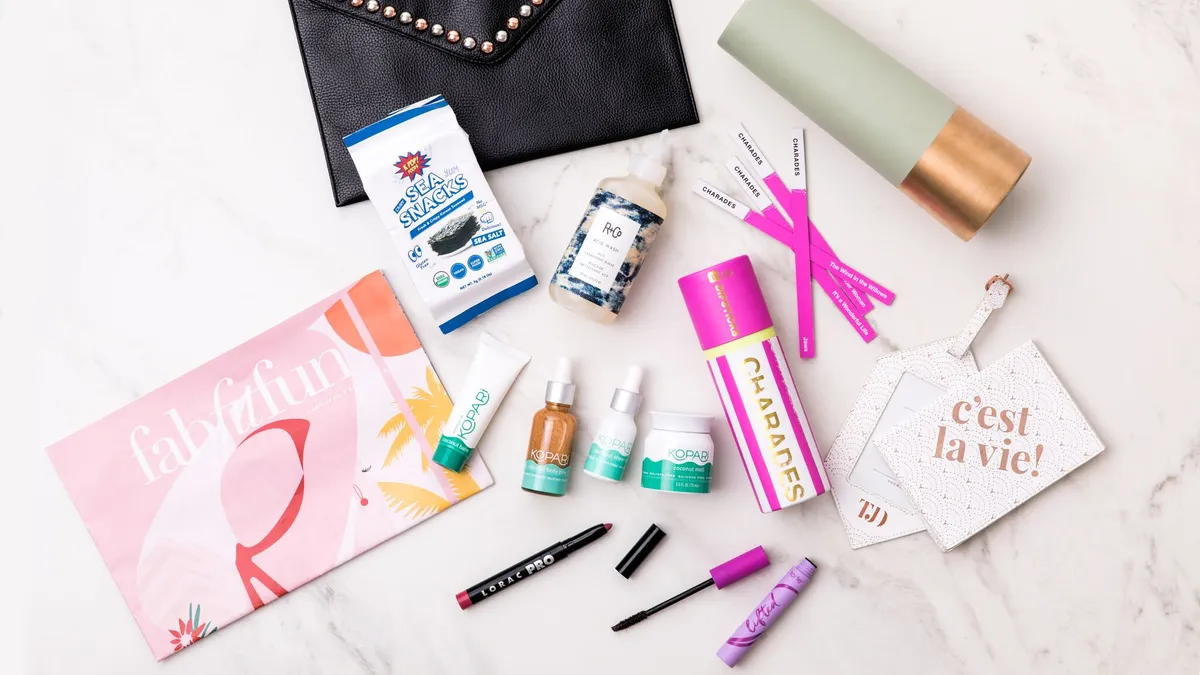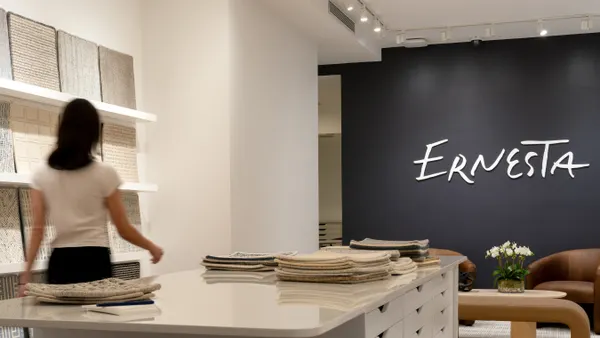Dive Brief:
-
At the Cannes Lions Festival of Creativity, a summit in France attended by creatives going on this week, subscription startup FabFitFun and Pinterest announced a special edition box, available to members for $49.99, according to a company press release emailed to Retail Dive.
-
The "FabFitFun Pinterest 100 Box," which includes items like makeup and personal care products, a vase, travel accessories, a Talking Tables Dipstick Charades game, snacks, and a scarf or clutch, is based on the social media site's forecast of this year's top 100 trends, the Pinterest 100.
-
The subscription startup earlier this year installed a two-day pop-up in downtown Los Angeles to celebrate its spring box and meet customers face to face.
Dive Insight:
FabFitFun has grabbed a niche in subscription retail, keeping its deliveries to just four times a year and filling them with a mix of items aimed at pleasing its mostly female customers.
The company's success, mixed with Pinterest's discovery focus, means their tie-up "makes a lot of sense," according to Chris George, cofounder of men's accessories subscription the Gentleman's Box and business development chief at the Subscription Trade Association, which two years running has bestowed its people's choice award on FabFitFun.
"The FabFitFun audience is almost identical to the Pinterest audience," he said in an interview with Retail Dive. "They have probably 90% female subscribers, and the 10% who are male are probably buying gifts for women. And 80-81% of the Pinterest audience is female. The demographics just align perfectly."
Pinterest has more than 175 million active monthly users looking for inspiration on everything from their home decor to new product ideas, which saves FabFitFun some customer acquisition effort, and its top 100 list provides FabFitFun with a handy potential assortment, he said. Meanwhile, the subscription service provides Pinterest with a tangible product to complement its list. "It's great for Pinterest because they've partnered with somebody that really knows the subscription space," according to George.
Subscriptions are being embraced by startups like FabFitFun as well as consumer product giants like Unilever (which bought Dollar Shave Club for $1 billion two years ago), but things are still shaking out as companies work to figure out how to keep customers around. The model is one of the top five forces in retail that are re-shaping the market, according to retail think tank Coresight Research. And millennials are more interested in subscription services than any other generation, according to a survey last year by data-driven marketing firm Fluent.
But it's also run into trouble in some cases. Just 55% of consumers who consider a subscription service ultimately subscribe, with replenishment services enjoying a 65% conversion rate (driven by a more staid motivation than those considering a curation service, with 52% conversion, or an access style service, with a 51% conversation rate), according to a study from McKinsey and Co. emailed to Retail Dive.
There are two basic types of subscriptions, replenishment-based and discovery-based. For the latter, the quarterly approach taken by FabFitFun and others helps alleviate the "product fatigue" that spurs most cancellations, George said. "The quarterly model in my opinion is the future of subscriptions," he said.














